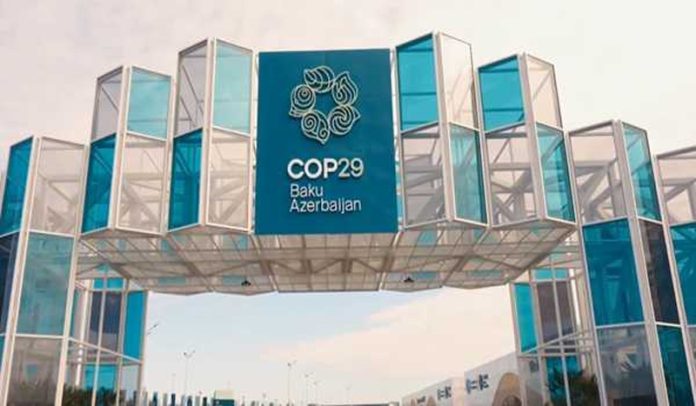BAKU, Nov 21: Reminding the developed nations of their emission history, India has iterated its demand for sanction of at least 1.3 Trillion US dollars including 600 billion US dollars as climate finance aid to developing countries who have been suffering from the impacts of climate change.
The statement reads, “For the developing countries, our people’s lives – their very survival – and their livelihoods are at stake due to climate change. The accessibility to credible Climate Finance to the
Global South, CoP28 Global stock take decision emphasized the need to bridge the gap in adaptation, gaps in implementation that arise from the lack of sufficient attention and resources, which has not yet been made available.”
“The parties to the Paris Agreement adopted the UAE Framework for Global Climate Resilience acknowledging the urgent need for enhanced support and resources from developed countries to help developing nations meet adaptation targets. The mobilisation should go beyond previous efforts, supporting country-driven strategies while respecting the unique needs of developing countries.”
The statement asserted, “The New Collective Quantified Goal (NCQG) for the period post-2025 needs to be an ambitious mobilisation target at grant/concessional term. An important aspect that needs to be addressed is the slow disbursements, lack of flexibility to adapt to changing requirements, and long complex approval procedures withst ringent eligibility criteria that make it difficult to access climate finance.”
The Initial Adaptation Communication of developing countries was submitted to the UNFCCC last year, which outlined that the requirements for building adaptation capital could rise to about USD 854.16 billion. Clearly, a significant boost in adaptation finance flows is essential, it underlined
India called upon the developed countries to fulfil the agreed commitments, concerning the adaptation finance needs of developing countries. Meeting the commitments would enable the world to travel through a pathway towards strides in creating a greener, more sustainable and prosperous planet for future generations.
(UNI)
Home International India demands USD 1.3 Trillion climate impact management fund for developing nations


